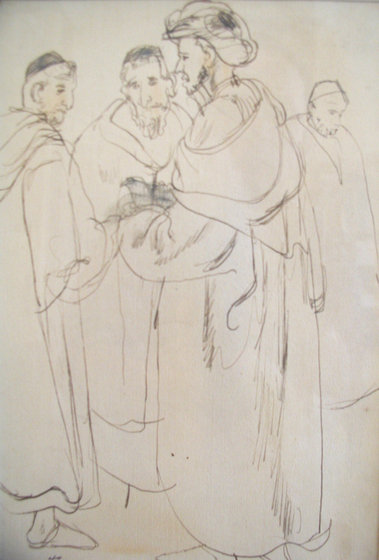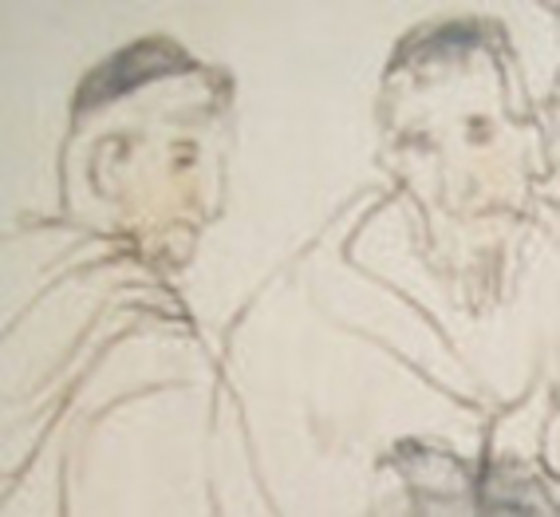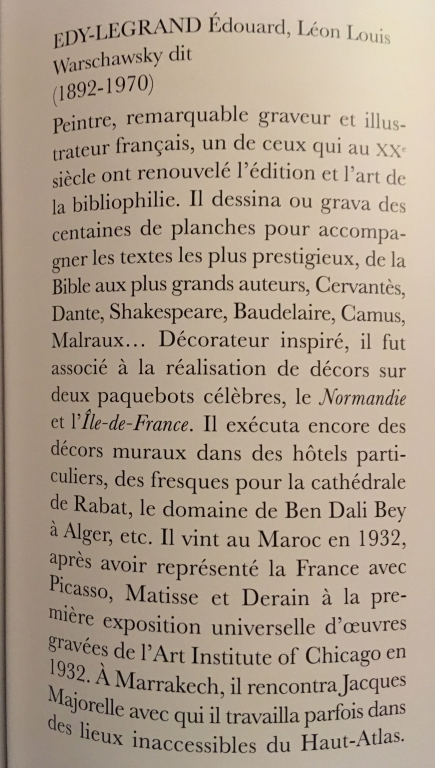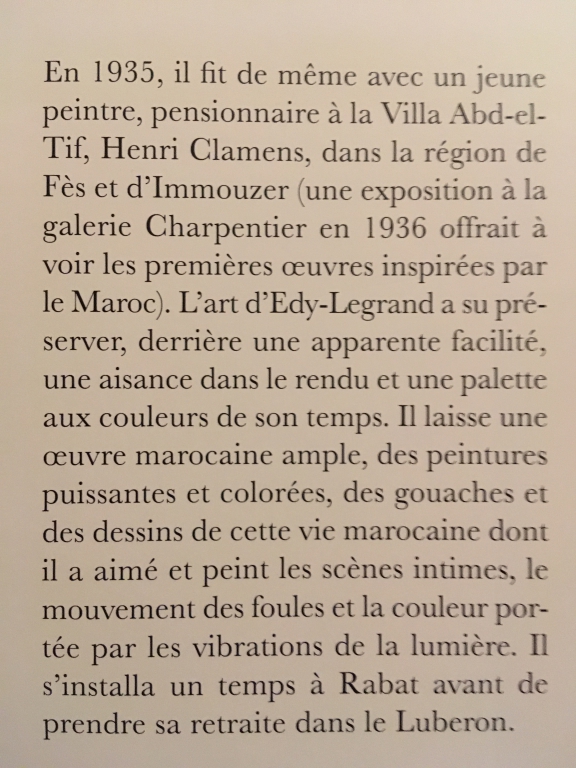JUIFS DU MELLAH DE FÉS
Edy Legrand (1892-1970)
| Numéro d'objet: |
22529 |
| Catégorie: |
Tableau / Dessin |
| Technique: |
Encre de Chine |
| Origine: |
France |
| Date: |
1934 |
| Support: |
Papier |
Recherche dans "Notes":
Il peint des paysages et les habitants du Maroc.Il voyage durant une vingtaine d'années de Tanger à Goulimine.En 1933 il collabore avec Majorelle.Il peint aussi de larges compositions et réalise la décoration de paquebots et de grands magasins parisiens.
The Mellaḥ.
In most of the towns of Morocco the Jews are forced to congregate in the Mellaḥ = "place of salt"—sometimes called in derision "Massus" = "saltless"—in which they are confined at night by gates beyond which many of the women never pass. Those Jews who do so must needs walk barefoot, even riding being forbidden to them within the walls. Certain streets approaching mosques and shrines are interdicted altogether. Outside the walls Jews may ride any animals but horses, which are considered far too noble for such despised individuals. In order that they may never be mistaken for their "betters," a dark-colored gabardine, with black skull-cap and slippers, is compulsory for the men. The women, however, may dress as they like, which in some cities means, in the streets, placing a sheet over their heads to hide their faces in the Moorish fashion, and in others following closely the style adopted by their neighbors when indoors.
In the Atlas district, if a village has not a Jewishquarter, there is generally a companion village at a stone's throw and devoted to the "tributaries," who are the pedlers, the craftsmen, and the muleteers, if not the farriers, of the district. The condition of the Jews of such villages is even worse than of those in the towns; for it lies between that of serfs and that of slaves. Some are under the binding protection of the local sheik; others pertain to private individuals, who have practically the right to sell them. They are not only compelled to do much without payment, but are imposed upon at every turn. They may not marry or remove their families till they have received permission from their so-called protectors; and without this protection they would not be safe for a day. Yet a few dollars has sometimes been considered sufficient blood-money for one of these unfortunates. On the other hand, outsiders are permitted to do them no injury, which would be considered as inflicted upon their protector ("kasi"), who makes the duty of avenging such injury a point of honor. Disputes of this nature between powerful men lead frequently to intertribal quarrels.







